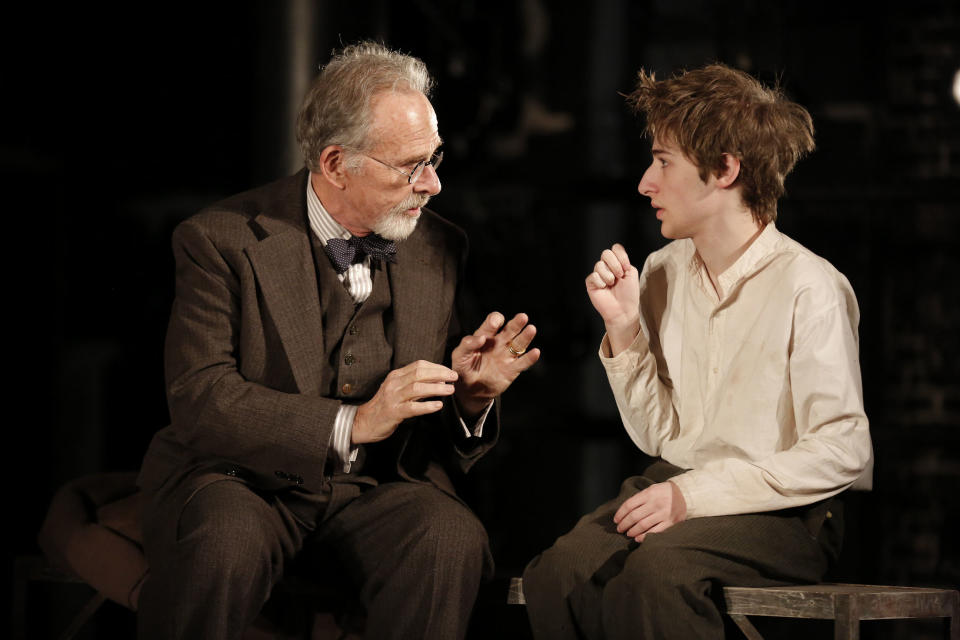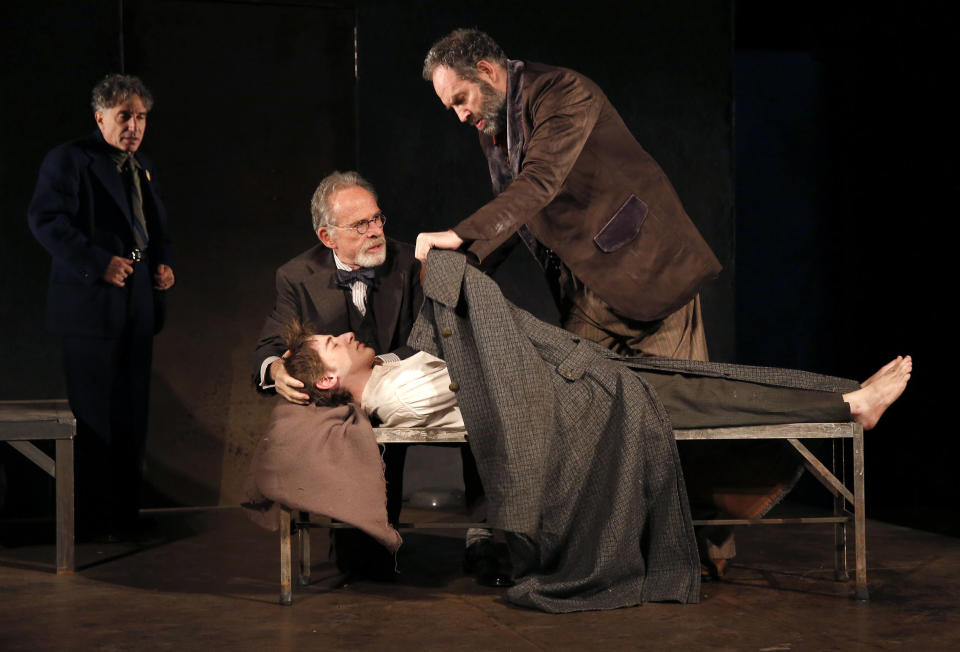Review: A skilled cast evokes Stalin-era horrors
NEW YORK (AP) — "Judaism isn't my life," a prisoner says in "The Twenty-Seventh Man," Nathan Englander's sad and chilling play about a group of Jewish writers rounded up by Josef Stalin's secret police. "It's my culture, my language. No more."
The tragedy of that statement is, of course, clear to everyone else — to the other prisoners in the cell, and to the audience. Stalin and his henchmen, like the Nazis, didn't seem to care about such subtle distinctions. A Jew was a Jew, no matter how he "defined" his Judaism.
An undercurrent of deep sadness runs through the 100 or so minutes of "The Twenty-Seventh Man," which opened Sunday night at The Public Theater. That's because the end never seems much in doubt. The question is how we will get there.
Director Barry Edelstein does an admirable job of keeping the action moving, with little real action to speak of; Until the (very effective) final moment, the scene shifts only once, from the freezing cell where four writers are kept, to a prison office, and back again. And Edelstein is blessed with a uniformly excellent cast.
The one weakness — and this is unfortunate given that the play speaks of the beauty of language — is that sometimes the language feels stilted. Though this is a new play, adapted by Englander from his short story of the same name, the dialogue sounds, at times, dated and musty, particularly as philosophical discussions among the prisoners ramble on.
Not that there aren't touches of welcome humor. The wise Yevgeny Zunser, sort of an elder statesman among the writers, explains why he dresses in such a dapper manner: "Real work does not get done by a man in his underpants," he quips.
There is certainly no humor, though, in the particularly biting scene in that prison, between the Agent in Charge (the very title induces chills, and the accomplished actor Byron Jennings adds his own) and Vasily Korinsky, the self-important poet who seeks to prove he's not like the others. It's all a big mistake, Korinsky insists with brio, leading up to this meeting. He's a great patriot, after all. And he has connections, to boot. Soon this will all be resolved.
But Korinsky, played with heartbreaking bluster and self-delusion by Chip Zien, has no idea what he's up against. Not to reveal too much, but it's safe to say that the next time we see Korinsky, he is deluded no more.
Zien and Jennings are matched by an equally skilled company of actors. As Zunser, Ron Rifkin exudes a sad, touching nobility. Daniel Oreskes brings humor and vibrant life, both physical and emotional, to the role of poet Moishe Bretsky, a big man with big appetites and a defiant love for the Yiddish language.
And Noah Robbins movingly conveys both the terror and pride of a young man, a boy really, who finds himself incarcerated with the great writers he so admires. His character, Pinchas Pelovits, is horrified to be in prison and facing possible death, but thrilled to be counted among his heroes.
After all, Pelovits reveals to his bewildered cellmates, he has written much — novel after novel, in fact, day after day, in his room — but published absolutely nothing. His name is unknown. So how did he get there? Twenty-six well-known writers have been rounded up, but Pelovits is the 27th (hence the play's title.) Why?
That's the mystery that drives the play, and it's a welcome one, dramatically speaking; there doesn't seem to be too much mystery, after all, about the probable fate of a cell full of Jews rounded up by Stalin's secret police.
Even more welcome is the very existence of a play that teaches or reminds audiences — younger ones, too, we can hope — about some of the horrors of the 20th century. (The play refers to real events). And Englander reminds us, too, of something most of us surely take for granted: the freedom to create, or write, well or badly, in whatever language we please.
"No more than your language?" responds Zunser, to Korinsky's claim that his Judaism is "no more" than that.
"Who are we without Yiddish?"
___
Online:
http://www.publictheater.org


